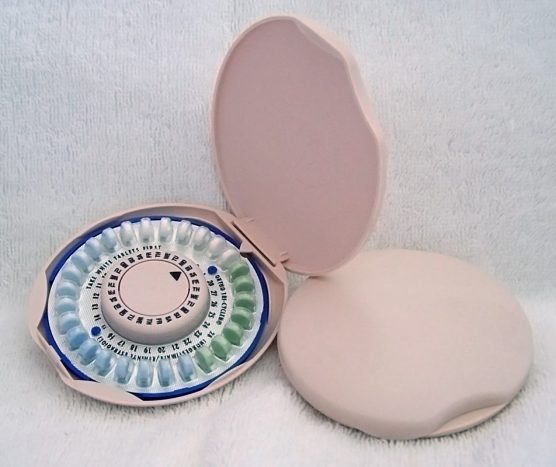The Trump administration changed rules on how the government funds programs to prevent teen pregnancy, but the law requires that money to go to evidence-based programs – a hurdle that abstinence-only programs don’t clear, the Ninth Circuit ruled Friday.
The case is one of many pitting Planned Parenthood against the White House. Other cases are centered on new rules that cut funding under Medicaid and Title X for organizations that provide abortions or even discuss a patient’s ability to obtain the procedure.
Friday’s ruling is the first from a U.S. Circuit Court of Appeals to clear the way for organizations to fight changes to funding rules under the Teen Pregnancy Prevention Program. Here, the Ninth Circuit reversed a lower court’s dismissal of Planned Parenthood’s claim that the Trump administration illegally tied grants to prevent teen pregnancy to two programs designed to promote abstinence.
Jacqueline Ayers, Planned Parenthood’s vice president of government relations and public policy, said Friday that the organization would continue its fight to provide youth with effective health care.
“Every young person deserves to have full, accurate information about their bodies and their health,” Ayers said. “We are pleased that the court today recognized the unlawful actions taken by the Trump-Pence administration in its efforts to impose its abstinence-only agenda across the country.”
The new rules required applicants for grants under the Teen Pregnancy Prevention Program to use either the Tool to Assess the Characteristics of Effective Sex and STD/HIV Education Programs (TAC) or the Systematic Method for Assessing Risk-Avoidance Tool (SMARTool), developed by the Denver-based abstinence-only promoter Center for Relationship Education. The Department of Health and Human Services scored applicants for its 2018 round of grants based on how effectively they used the tools – an assessment that comprised at least 25% of the grant criteria.
Planned Parenthood balked. Instead of applying, it sued the department in federal court in Washington, claiming the new rules illegally stacked the deck in favor of abstinence-only programs. U.S. District Court Judge Thomas Rice of Spokane dismissed the lawsuit, finding Planned Parenthood didn’t have standing to bring its complaint and hadn’t shown that the rules harmed it – in part because it didn’t apply for the 2018 grants.
In 2019, the department announced its new round of grants. This time, because of various rulings in a wave of court cases, the department didn’t explicitly tie the money to applicants’ promises to use TAC or the SMARTool. “Nevertheless,” the department said it planned to include the TAC and SMARTool in a “substantially similar approach … to funding in the future so as to optimally replicate effective programs for teen pregnancy prevention.”
On Friday, the Ninth Circuit reversed Rice’s dismissal, finding Planned Parenthood had shown that the change in criteria harmed its ability to compete with abstinence-only organizations, especially since the rule changes appear to be ongoing.
“It is a plaintiff’s ability and readiness to bid that ensures an injury-in-fact is concrete and particular,” U.S. Circuit Judge Ronald M. Gould, a Bill Clinton appointee, wrote for the panel. “Entering a bid makes the injury actual; deciding not to bid makes the injury imminent.”
The panel, which included U.S. Circuit Judge Jacqueline Nguyen, a Barack Obama appointee, and Senior U.S. District Judge Gregory Presnell, a Clinton appointee sitting by designation from the Middle District of Florida, also ruled on a question not yet decided by the lower court – a liberty Gould wrote was called for because the otherwise the department might announce rules for the 2020 grants before Rice can rule in the case.
The government awards two types of grants under the Teen Pregnancy Prevention Program, or TPPP. One type requires recipients to use programs proven to be effective at reducing teen pregnancy and another type is designed to facilitate research on new strategies for prevention. The Trump administration’s two new abstinence promotion tools haven’t yet been implemented and aren’t proven effective, Gould noted, which makes requiring them as a condition of the first type of grant illegal.
“This is plain as day based on dictionary definitions,” Gould wrote.
While the judges questioned whether the abstinence promotion tools would facilitate new research to produce innovative ways to prevent teen pregnancy, as the second type of grant was designed to do, requiring their use there was not plainly illegal, Gould wrote.
“While it is debatable whether these tools will facilitate ‘research and demonstration grants to develop, replicate, refine, and test additional models and innovative strategies for preventing teenage pregnancy,’ this requirement is not contrary to the TPPP on its face,” Gould wrote.
The panel remanded the case to Rice for a ruling on whether implementation of the new rules was arbitrary and capricious.
“An agency, of course, is generally empowered to change its policy,” Gould noted. “But the decision requires rationality and must be supported by the record.”
Attorneys who argued the case for the Justice Department did not respond to requests for comment.
— By Karina Brown
Like this:
Like Loading...
Related





 Tweet This
Tweet This Facebook
Facebook Digg This
Digg This Bookmark
Bookmark Stumble
Stumble RSS
RSS


























REAL NAMES ONLY: All posters must use their real individual or business name. This applies equally to Twitter account holders who use a nickname.
1 Comment
If its morally right, the Ninth Circuit court will strike it down. they are against anything good.